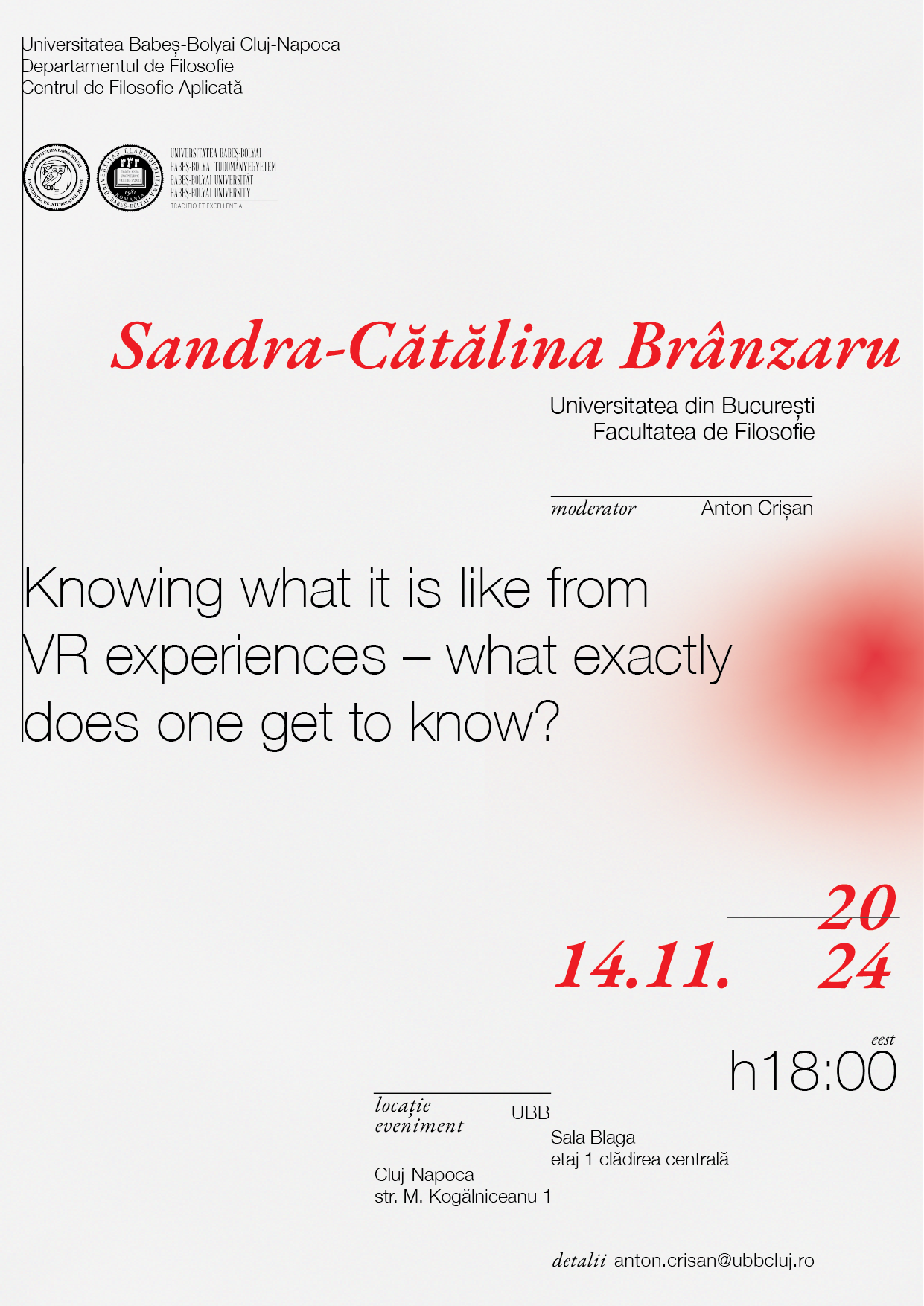14 noiembrie 2024
Conferința Knowing what it is like from VR experiences – what exactly does one get to know?, Sandra-Cătălina Brânzaru
Facultatea de Istorie și Filosofie prin Departamentul de Filosofie și Centrul de Filosofie Aplicată vă invită la conferința intitulată Knowing what it is like from VR experiences – what exactly does one get to know? susținută de către Sandra-Cătălina Brânzaru (Universitatea din București, Facultatea de Filosofie). Evenimentul va avea loc joi, 14 noiembrie 2024, de la ora 18:00 în sala Lucian Blaga, Clădirea Centrală a UBB Cluj-Napoca, str. M. Kogălniceanu nr. 1, etaj 1. Evenimentul se va derula în limba română.
It seems that the kind of knowledge that one has in relation to what it is like to go through something is tightly related to the experience that one has of going through something (to know what it is like to Φ only if one has had the experience of Φ-ing). VR empathy simulations are often considered to enhance the user’s empathy (ability) and/or induce prosocial behaviour in the physical, non-virtual environment. Either way, the idea seems to be that such VR apps lead, to some degree, to a transformative experience. I aim to critically examine such claims. Experimental results are mixed, some people might be more empathetic after having a VR empathy simulation experience, some may not. According to Paul (2014) a TE would encompass both an epistemic (grasping knowledge unreachable prior to the TE) and a personal dimension (changing values, core beliefs, self-conception). The problem I try to tackle is if it is actually the case that a person gains knowledge of “what the experience is like” in a VR simulation.


